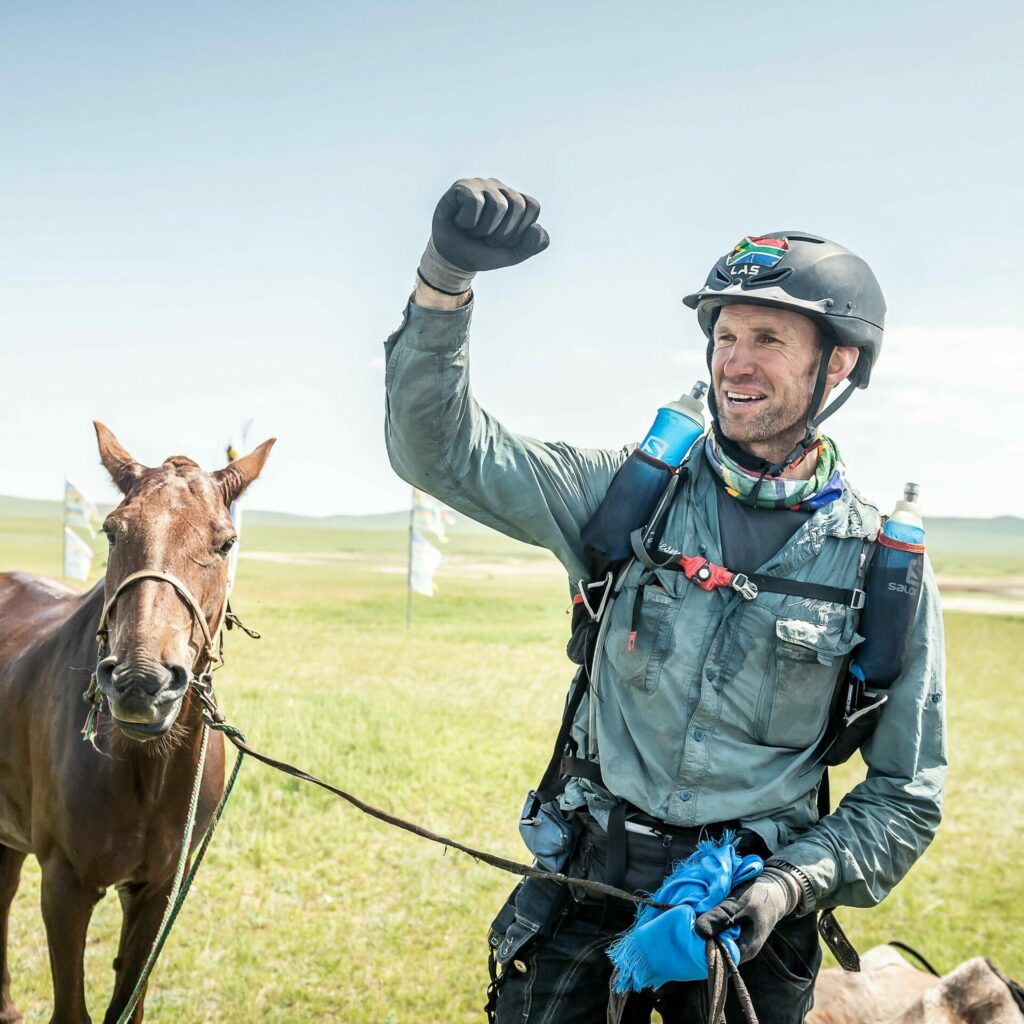Derby Diary #5
As the Derby progresses, the riders find themselves in that exhausted, surreal state where the ordinary becomes extraordinary. The sheer magnitude of the Mongolian landscape and the significance of their odyssey across it smacks them in the face. Home seems like a million miles away, and the end of the race is still a long ways off…
Patrick Sells: “Despite the pain, we rejoiced in the extraordinary surroundings. To be in limitless space, unfettered by walls and fences, was uplifting. For the same reason I crave being in the mountains, I found peace in Mongolia. The land was not divided and parcelled up; it was flowing, shared by all. Herds of horses ran free, the stallion leading, foals cantering behind the mares at foot. At one point, riding alone into the final urtuu on Day 4, I was faced with a vista of such beauty, I don’t mind admitting that in my exhausted state I was moved to tears. A murmuration of starlings swirled back and forth as the sun dropped towards the mountains in the west; the only sounds were the horse treading softly beneath me and a large herd of yaks cropping the steppe grass nearby, some pausing to watch me pass. Smoke drifted from the chimney of the cosy white ger just a little further down the river valley, promising warm stew and a place to lie for the night. Such ecstasy at simple pleasures; an elated grin through tears of sheer wonder.
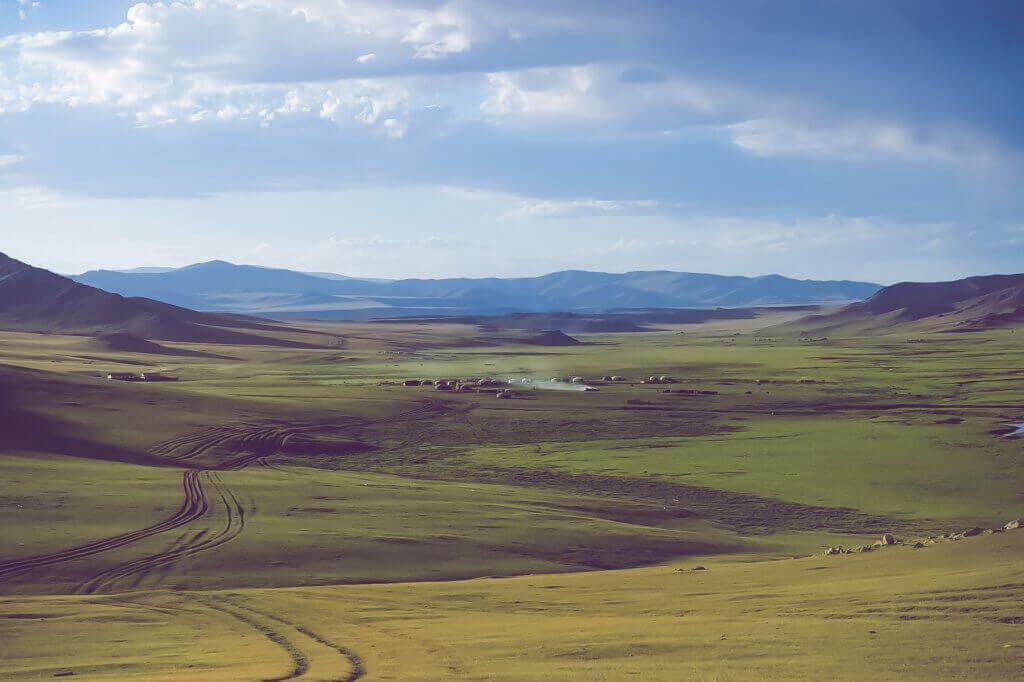
In every ger would be a shrine to the horse. Faded photos of their best racehorses in generations gone by, with medals hanging over plastic horse figurines. Roughly made felts and tapestries of riders on strong steeds mounted on the wicker walls. Even in this modern age, here still exists a society that cherishes the simple but important things in life: family, horses, livestock and the land. To Mongolians, God exists in the Eternal Blue Sky, in the wind and the rain. He cannot be contained in a church or a mosque, nor in a book or text. Although an atheist, this makes far more sense to me than any other religion I’ve yet encountered.
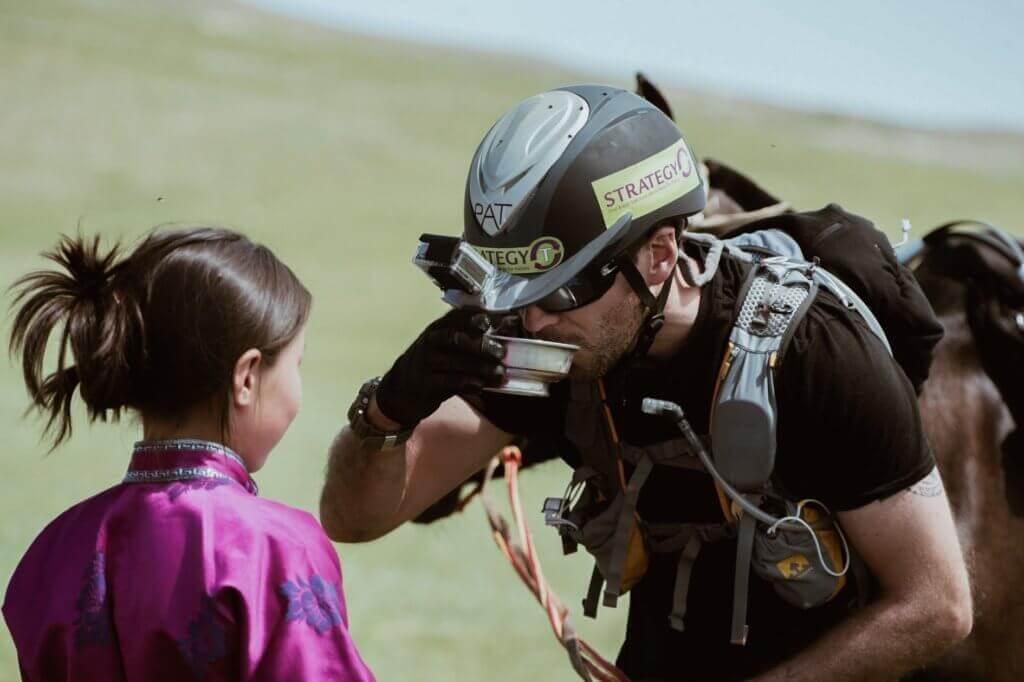
Ghengis Khan too found these foreign religions perplexing, but under his omnipotent rule he allowed freedom of choice for his subjects to worship whoever they wished. His was a ground-breaking meritocratic society, meaning that one’s place in the community was based upon that person’s merit rather than his breeding. He smashed feudal systems, and therefore in a way liberated millions under his vast empire. Of all figures in the short history of mankind, Ghengis Khan, quite rightly crowned ‘Man of the Millenium’, for me stands supreme.”
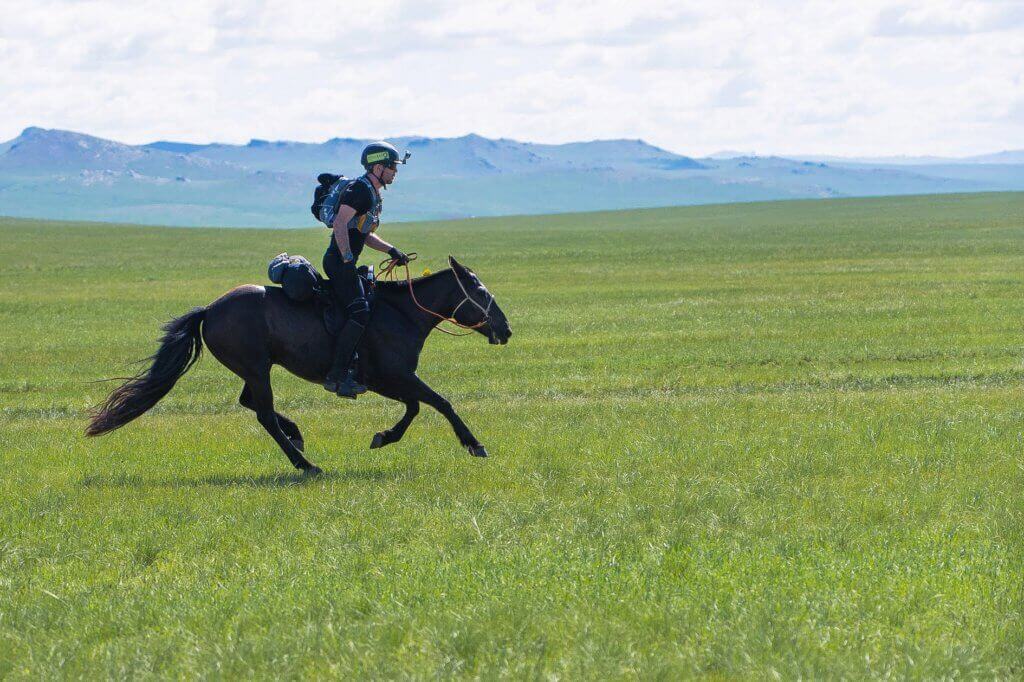 Photos by Saskia Marloh
Photos by Saskia Marloh
Riders can be a superstitious lot and good luck charms abound in the race. Some riders have carried photos, some have carried letters from loved ones, but Jesse arrived with a unique nautically-themed talisman, and a ölzij ulzii – a good luck charm design common in Mongolia and associated with Buddhist beliefs.
Jesse Byrne: “Before I left for the Derby, things were pretty emotional for me. I get a little that way if I have to leave my family. My son Logan, who was five at the time, decided to make me a going away present. I initially thought it was just a message, but then he informed me the message was written on a pirate ship. This gesture just turned me into a blubbering mess. I wore the pirate ship on a piece of string around my neck, and it became my symbol of strength. When times were tough, I’d reach in and feel that stupid little piece of plastic and carry on, knowing that the harder I rode, the quicker I could get back to everyone. I also had a Mongolian talisman, which was a present from my whole family. Somehow they’d found a Mongolian good luck charm in a local shop in Banbury where we live and presented it to me before I left.
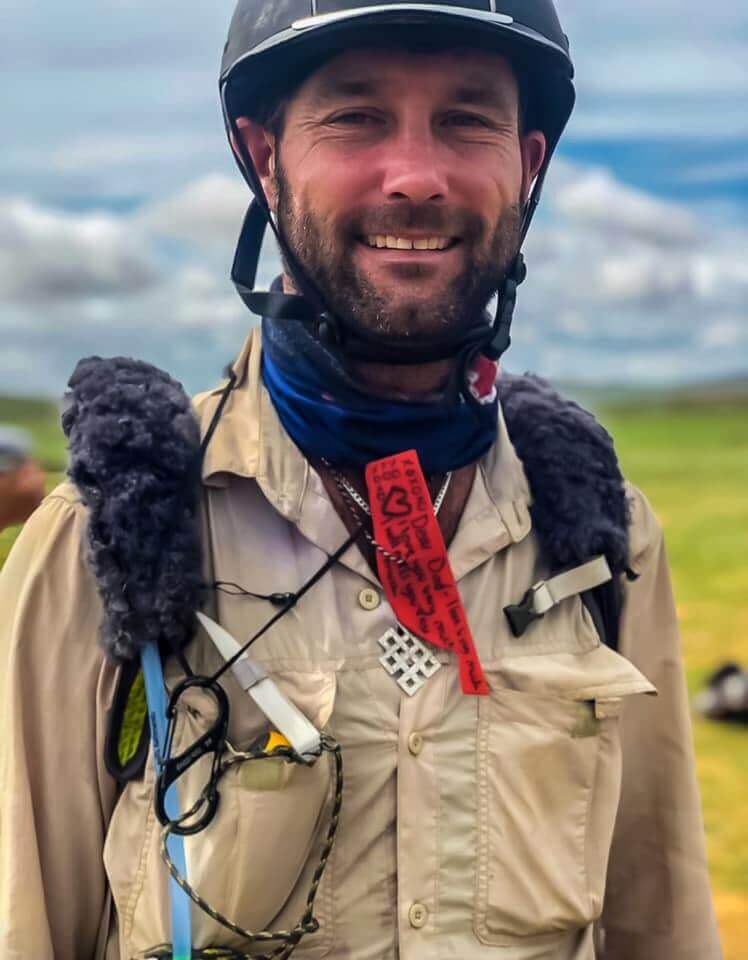
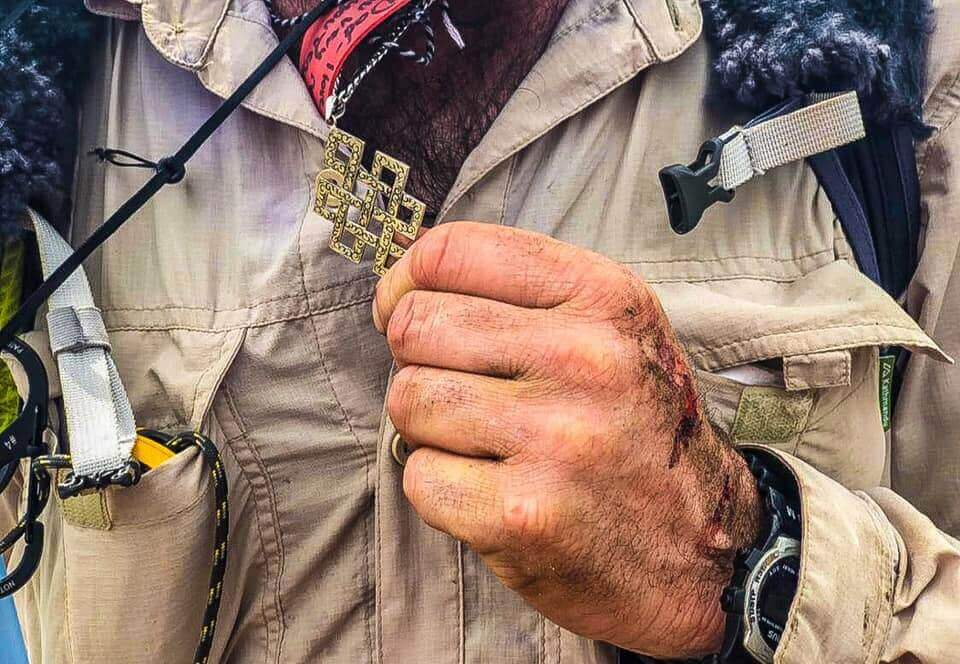
As the race progressed, the talisman and that little pirate ship stayed with me, but on about Day 4, I had a quick feel for the ship but it wasn’t there. I had expected it to fall off, but when I thought it had, it really rattled me. I could feel the Mongolian talisman, but the ship was gone. At the end of that day, when I got undressed, I realised that the ship was still actually there. It had worked its way around the back of my neck. I was so happy! I still treasure both the talisman and the pirate ship, and have worn them with pride, along with my Derby medal and deel, on numerous occasions.
At one station crew member Erik gave me the phone. I didn’t know what I was going to see, but first I saw a short video from Aoife, a friend of mine and Sarah’s from back home. It was in true Aoife style, swearing her head off at us and telling us how proud everyone back home was of us. Then the video switched to my wife and the kids and I just broke down. I turned away from the crew and vets that were there watching me (and I’m sure had been waiting for me to see the video and my reaction).
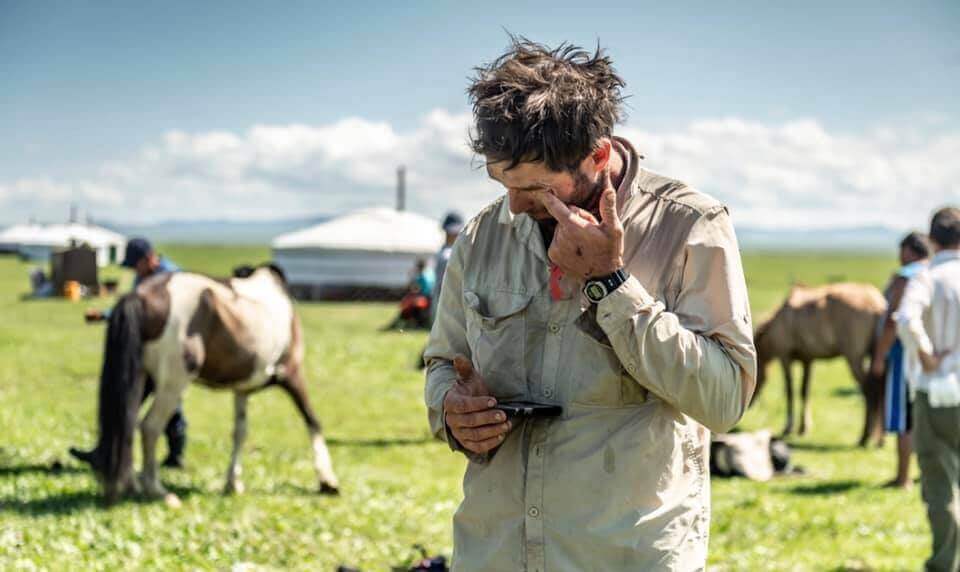
At that moment I became very happy that the finish wasn’t too far away and then I could start making my way home to them. I also became very proud of what we were doing and realised how big a task the Mongol Derby was. But to be honest with you, besides realising how much I missed my family, that was the point in the race that I realised how absolutely stuffed I was and that whatever position I finished the race in, I’d given everything I could at that point. I also realised how much I needed to catch Sarah and Margreet who had gone on ahead of me after I’d lost my horse and got a 3 hour time penalty. I’d been riding so hard to catch them and I really needed my team back so we could all cross the finish line together.”
Photos by Sarah Farnsworth, Erik Cooper
